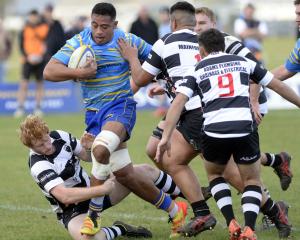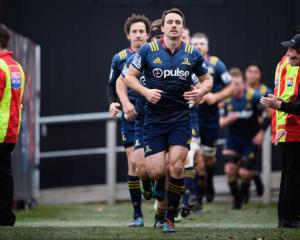
Clark said if things were not correct off the field then they would not come right on the field.
"If you get the money right, if you get the right people, and get the right culture and get the team back engaging with the fans then it can come right," he said.
"But that is an easy thing to say. To do it is a different matter."
Clark has had four months in the position as Highlanders project manager, and was the obvious choice for the job.
The job came about after the Highlanders board decided to go it alone and split from the Otago union, which previously managed the Highlanders on behalf of the New Zealand Rugby Union.
Clark's appointment is just the latest move in a spring clean for the franchise.
The board has had a complete overhaul in the past 15 months, while coaches Glenn Moore and Peter Russell have been dumped for Jamie Joseph and Simon Culhane.
Clark, who declined to give his age, will hand over the reins as chief executive of Southland Rugby over the next few weeks.
He is already working in the new Highlanders job, and will move to Dunedin early next month.
Clark, who is originally from Wellington and is married with three children, said to get a successful franchise was not all about winning on the field.
"Sure, winning is the ultimate goal but it is also about showing some credibility, how you play the game and how you conduct yourselves on and off the field."
Financially, the franchise had been bleeding money over the past few years with losses in the order of about $200,000 annually.
So stopping that hurt was the top priority for the Highlanders.
"You can't keep operating like that.
"We need to start generating some income to allow the team to be successful next year."
Clark said gate income was one of the main sources of revenue for the franchise and it, like at most other franchises, had decreased over the past few years.
It was critical to get the side performing at its best, and getting the right structure around it.
Highlanders chairman Ross Laidlaw said Clark was the best candidate for the job.
"He has done the job for 12 years down there and been part of a programme which has made a lot of progress," Laidlaw said.
As project manager, Clark carried out an overview of the entire Highlanders organisation but Laidlaw rejected the suggestion Clark had set himself up for a job within the new structure.
"We always worked on the basis that he was going to be a candidate and he did a lot of the spadework.
"But working out the best decision to have a general manager was the decision of the board, not of Roger's."
Clark said Greg O'Brien would not continue in the team manager role.
O'Brien would be operations manager for the franchise, with a new team manager to be confirmed.
A high performance manager was also to be employed but Clark said that position was not a major focus at the moment, and an appointment might not be made before Christmas.
The spring clean would continue with the side switching its base from Logan Park to the nearby back grounds of the University Oval, across the road from the new Forsyth Barr Stadium.
Clark and his team would have offices on the floor below the University of Otago rugby club rooms, behind the main stand at the University Oval.
Joseph had until October 25 to finalise 28 of his players for next season.
Four more players would then be added when the squads for the expanded competition are named on November 10.












